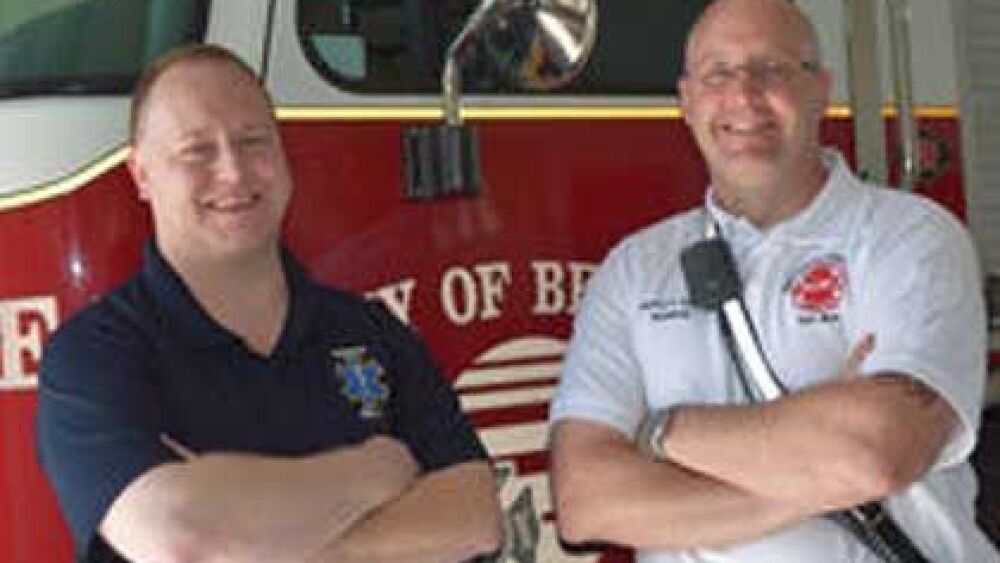BELOIT, Wis. — According to a recent study, incremental alarms help prevent firefighter heart rates from reaching extreme highs. And that could help curb a leading cause of firefighter deaths.
Dr. James MacNeal published the findings with Yale University researchers last month, after studying the heart rates of roughly 30 firefighters. He compared their resting heart rates and those after alarm tones.
“We looked at the startle response and we looked at ways to gently wake them as opposed to suddenly waking them,” MacNeal said.
The research was conducted by monitoring firefighters heart rates using watch monitors, reported WKOW. Researchers found that by increasing the volume of an alarm over the span of three to four seconds, heart rates increased much slower.
The new alarms, implemented last year, incrementally increase in volume to avoid startling firefighters and maintain healthy heart rates. The alarm system now only alerts the specific station responding to a call, versus a system-wide alert.
Beloit Deputy Fire Chief Joe Murray said that non-interval tones puts his firefighters on edge. “I would wake up and the tones would go off in the middle of the night, it felt like my heart pounding, it felt like it was coming out of my chest.”
The ramped up alarms, Murray said, has made “a huge difference.”
MacNeal said resting heart rates for firefighters could be in the 50s and jump to 130 beats per minute when an alarm sounds. This dramatic jump puts firefighters at a greater risk for cardiac arrest while on scene.
Firefighter heart rates are impacted by heat from fires and protective clothing, trapping body heat and causing the heart to work harder to cool the firefighter down.
“Basically, it’s an Olympic sport. When you go from a heart rate of 40 when sleeping to 150 before you get dressed, you are starting in the physiologic death spiral,” MacNeal told Beloit Daily News. “This is not a job where you can stop. If you are in the middle of rescuing someone you can’t stop.”












